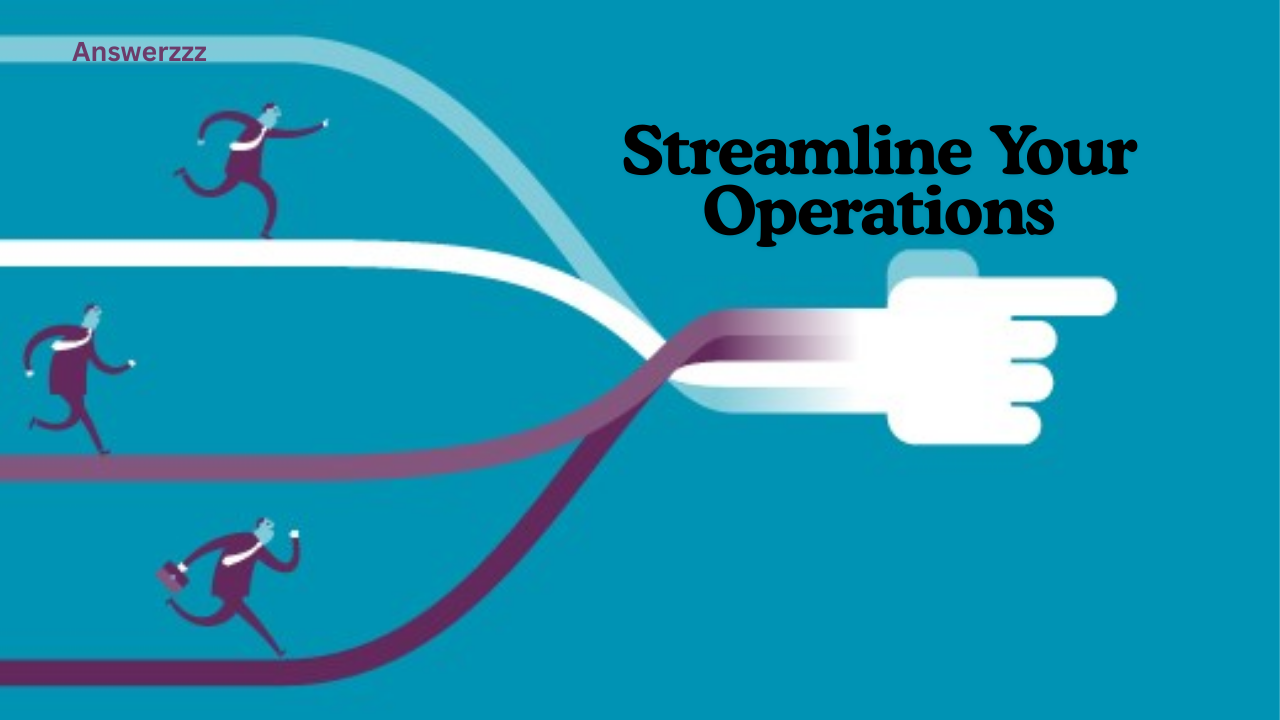In today’s fast-paced digital world, small businesses need more than just a great product or service to succeed—they need to leverage technology to streamline operations and improve efficiency. Gone are the days when technology was only accessible to large corporations. Now, there are countless tools designed to help small businesses stay competitive, enhance productivity, and manage day-to-day tasks with ease.
This article will explore the essential technology tools every small business should consider adopting. From project management software to accounting platforms, these tools can help streamline operations, saving time and money in the long run.
1. Project Management Tools

One of the biggest challenges for any small business is staying organized, especially when managing multiple projects at once. Project management tools can help by providing a centralized platform where teams can track tasks, deadlines, and progress in real-time.
Key Features to Look For:
- Task management: Assign and track tasks across teams.
- Time tracking: Monitor how long tasks take to complete.
- Collaboration: Share files, comments, and updates within the platform.
- Reporting: Generate reports on project progress, performance, and timelines.
Popular Project Management Tools:
- Trello: A user-friendly tool that organizes tasks in a card-based system. Its drag-and-drop feature allows easy movement of tasks through different stages of completion.
- Asana: Offers more robust task management with customizable workflows, making it ideal for teams with complex projects.
- Monday.com: A versatile project management tool with time tracking, task automation, and integrations with other platforms.
2. Customer Relationship Management (CRM) Software
Customer relationship management (CRM) software is essential for small businesses looking to grow their customer base and manage relationships effectively. A good CRM tool can help keep track of customer interactions, manage leads, and automate follow-up processes.
How to Effectively Manage Small Business Taxes and Deductions
Key Features to Look For:
- Lead management: Track where leads are in the sales funnel and ensure no opportunity is missed.
- Customer interaction tracking: Log all communications, from phone calls to emails, in one place.
- Automation: Set up automated follow-up emails, alerts, and reminders.
- Analytics and reporting: Gain insights into customer behaviour and sales trends.
Popular CRM Tools:
- HubSpot CRM: Offers a free version with essential features like contact management and email tracking, making it ideal for small businesses with limited budgets.
- Salesforce: A powerful, customizable CRM platform that is scalable as your business grows.
- Zoho CRM: Known for its affordability and easy-to-use interface, Zoho CRM offers robust features tailored for small businesses.
3. Accounting and Invoicing Software
Managing finances can be overwhelming for small business owners, especially if they’re not familiar with accounting practices. Fortunately, accounting software can simplify bookkeeping, invoicing, payroll, and tax preparation. This helps reduce errors, saves time, and ensures that your finances are always in order.
Key Features to Look For:
- Expense tracking: Automatically record and categorize expenses.
- Invoicing: Create and send invoices directly to clients.
- Payroll management: Handle employee payroll and tax deductions.
- Financial reporting: Generate income statements, balance sheets, and cash flow reports.
- Tax filing: Simplify tax preparation and compliance with built-in tax calculation tools.
Popular Accounting Tools:
- QuickBooks: The most popular accounting software for small businesses, QuickBooks offers comprehensive tools for invoicing, expense tracking, payroll, and tax preparation.
- FreshBooks: Known for its easy-to-use interface, FreshBooks is perfect for small businesses and freelancers who need simple invoicing and expense tracking.
- Xero: An online accounting tool that integrates with over 800 business apps, making it ideal for businesses looking for flexibility.
4. Communication and Collaboration Tools
In a small business, keeping everyone on the same page is critical, whether employees are working in the office or remotely. Communication and collaboration tools make it easier for team members to stay connected, share updates, and collaborate on tasks in real-time.
Key Features to Look For:
- Instant messaging: Enable quick, real-time communication between team members.
- Video conferencing: Facilitate face-to-face meetings without the need for physical presence.
- File sharing: Allow easy and secure sharing of documents, images, and other files.
- Integration: Work seamlessly with other business tools, such as project management platforms.
Popular Communication Tools:
- Slack: A messaging platform designed for business teams, Slack allows for organized communication through channels and private messages, while also offering integrations with various tools.
- Microsoft Teams: A collaboration tool that combines chat, video conferencing, and file storage in one platform. It’s perfect for businesses already using Microsoft Office products.
- Zoom: Best known for its reliable video conferencing capabilities, Zoom has become a staple for businesses needing remote meetings.
5. Email Marketing Tools
Email marketing is a powerful tool for engaging with customers and promoting products or services. By automating email campaigns, small businesses can nurture leads, boost customer retention, and drive sales without the need for extensive marketing resources.
Customer Retention 101: Top Tips to Keep Your Clients Coming Back
Key Features to Look For:
- Automation: Schedule and send emails based on user behaviour or set timelines.
- Segmentation: Target specific groups of customers based on their preferences or past purchases.
- Analytics: Track open rates, click-through rates, and other performance metrics.
- Template design: Create professional-looking emails without the need for design skills.
Popular Email Marketing Tools:
- Mailchimp: One of the most popular email marketing platforms for small businesses, offering features like automation, audience segmentation, and detailed analytics.
- Constant Contact: Known for its easy-to-use interface, Constant Contact helps small businesses create email campaigns and track their effectiveness.
- Sendinblue: A comprehensive marketing tool that offers email marketing, SMS marketing, and chat functionality, making it ideal for businesses with multiple marketing needs.
6. E-Commerce Platforms
For small businesses that sell products online, having a reliable e-commerce platform is crucial. These platforms enable businesses to create an online store, manage inventory, and process transactions securely. They also offer features that enhance customer experience and make online selling easier.
Key Features to Look For:
- Customizable storefront: Design a unique online store that reflects your brand.
- Inventory management: Track stock levels and set up automatic alerts when inventory runs low.
- Secure payment processing: Offer multiple payment methods and ensure transactions are safe.
- Mobile optimization: Ensure your e-commerce store works smoothly on mobile devices.
Popular E-Commerce Platforms:
- Shopify: A top choice for small businesses, Shopify offers a user-friendly platform with customizable themes, secure payment options, and inventory management tools.
- WooCommerce: Built as a plugin for WordPress, WooCommerce allows businesses to turn their WordPress site into an online store with various customizable features.
- BigCommerce: Known for its robust scalability, BigCommerce is great for small businesses that plan to grow quickly and need more advanced e-commerce solutions.
7. Cloud Storage and Backup Solutions
Data is one of the most valuable assets a business can have, and losing it can be devastating. Cloud storage and backup solutions help protect your business data by ensuring it’s securely stored and easily accessible from anywhere. This is especially important for small businesses, which may not have extensive IT resources.

Key Features to Look For:
- Automatic backup: Schedule regular backups of important files and data.
- Data security: Use encryption and other security features to protect sensitive information.
- File synchronization: Ensure files are always up to date across all devices.
- Accessibility: Access files from any device with an internet connection.
Popular Cloud Storage Solutions:
- Google Drive: Offers cloud storage with the ability to share and collaborate on files. It integrates seamlessly with other Google services like Gmail and Google Docs.
- Dropbox: Known for its ease of use, Dropbox is a popular choice for businesses looking to store and share files securely.
- Microsoft OneDrive: Part of the Microsoft Office suite, OneDrive integrates with other Microsoft products, making it ideal for businesses already using the Office ecosystem.
8. Cybersecurity Tools
With the rise of cyber threats, small businesses are increasingly targeted by hackers. Cybersecurity tools help protect your business from data breaches, malware, and other cyber risks. Investing in cybersecurity is essential to safeguard sensitive information and maintain customer trust.
Key Features to Look For:
- Firewall protection: Block unauthorized access to your business network.
- Antivirus software: Detect and remove malware and viruses from your devices.
- Encryption: Protect sensitive data by encrypting files and communications.
- Multi-factor authentication (MFA): Require multiple forms of verification to access sensitive systems or data.
Popular Cybersecurity Tools:
- Norton Small Business: A trusted name in cybersecurity, Norton offers comprehensive protection against malware, ransomware, and phishing attacks.
- McAfee Total Protection for Small Businesses: McAfee provides robust antivirus, firewall, and encryption tools to help small businesses protect their data.
- LastPass: A password management tool that helps businesses securely store and manage passwords while enabling MFA for added security.
Social Media Mastery: Build Your Brand and Engage Customers Online
9. Human Resources (HR) Software
Managing employee information, payroll, and benefits can be time-consuming for small business owners. HR software can help streamline these processes, making it easier to manage everything from recruitment to employee onboarding and benefits administration.
Key Features to Look For:
- Employee data management: Keep track of employee records, job details, and performance evaluations.
- Payroll processing: Automate payroll, tax calculations, and direct deposits.
- Benefits management: Manage employee benefits like health insurance, retirement plans, and paid time off.
- Time tracking: Monitor employee hours, attendance, and time-off requests.
Popular HR Tools:
- Gusto: A full-service HR platform that offers payroll, benefits administration, and time tracking, making it a top choice for small businesses.
- BambooHR: Focuses on simplifying HR tasks like employee data management, benefits tracking, and performance reviews.
- Zoho People: A user-friendly HR tool that integrates with other Zoho applications, making it ideal for businesses already using the Zoho ecosystem.
Running a small business comes with its fair share of challenges, but technology can make those challenges easier to manage. By adopting the right tools, small business owners can streamline their operations, improve productivity, and save time and money. Whether you’re looking to improve project management, enhance communication, or safeguard your business data, there’s a tool designed to meet your needs.
Investing in the right technology is not just about staying competitive—it’s about future-proofing your business for growth and success in an increasingly digital world.





